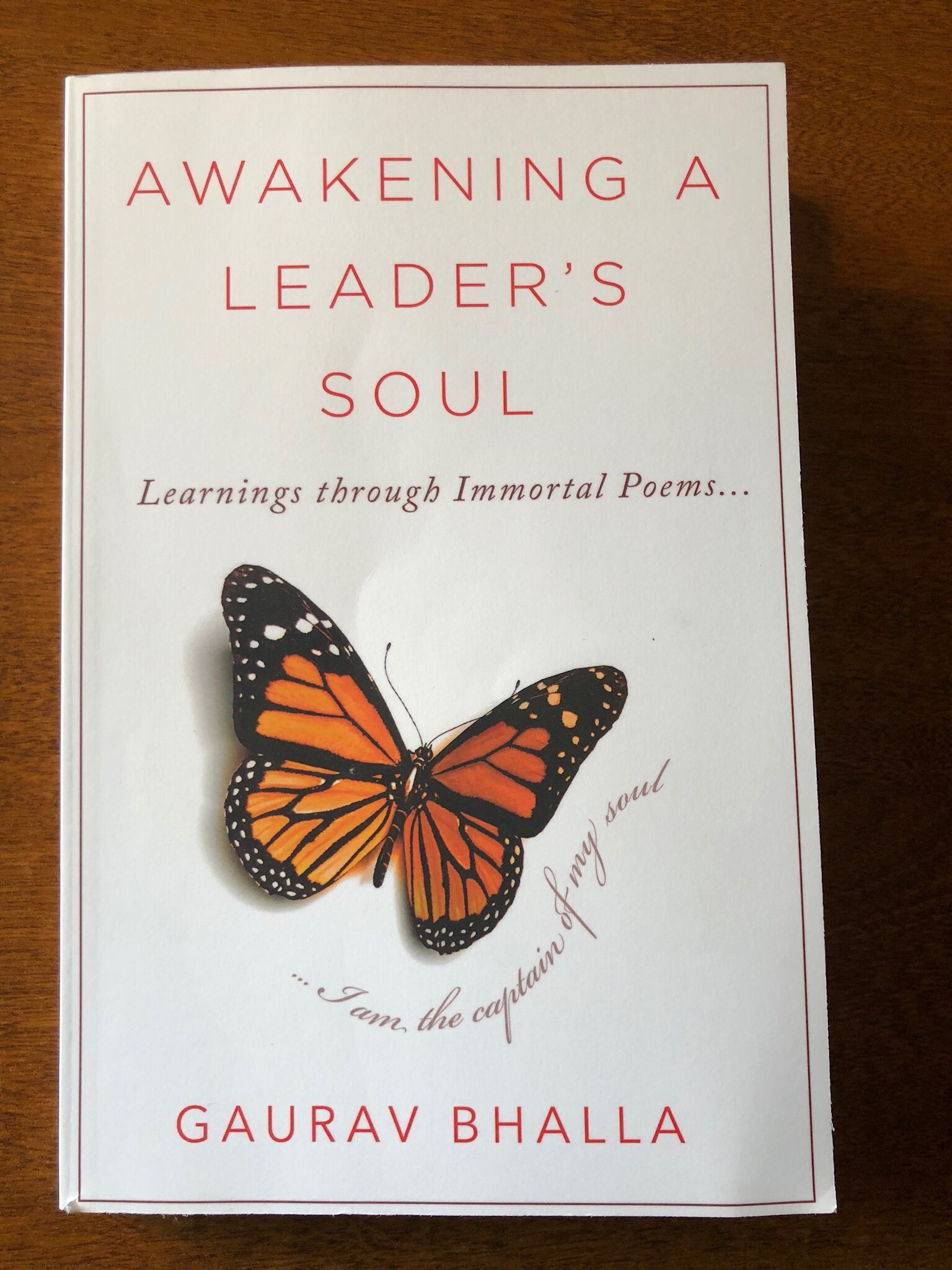“If you have to ask, you don’t have it.” — Popular response to people asking what is soul during the rise of “soul music” in the late 60s.
OK, where is this going, you may be asking. The last book I read is, “Awakening A Leader‘s Soul: Learnings through Immortal Poems,” by Gaurav Bhalla, published by Motivational Press. This is less a management how-to than a plea for enhanced leadership.

“In today‘s volatile, uncertain, complex, and ambiguous world (VUCA), leadership success is a function of something deeper, something more enduring than technical knowhow and leadership skills. It’s a function of the leader’s humanity—who they are, what they stand for, what they are willing to fight for, and what they are willing to accept and endure. Because what’s in the leader’s head may be smart and potent, but what’s within the leader that guides what’s in the leader’s head is even more potent, because it is wiser. Accordingly, the most important asset of leaders is not the smartness of their minds, it’s the wisdom of their souls.”
This book is for leaders who want to take the next step up the ladder of effectiveness and fulfillment. A new humanity—consider not only yourself, but also employees, customers, community, suppliers, planet. Reminds of reading AP Martin some 30 years ago—Proactive Management. He introduced me to the idea of “stakeholders.” When constructing vision and goals and making decisions, consider all the stakeholders affected. Bahlla continues the thread of thought.
Try out these ideas. Leadership success is a function of the leader’s humanity—what’s within the leader that guides what’s in the leader’s head. The most important asset of leaders is not the smartness of minds, it’s the wisdom of their souls. Egotistical leaders suck the oxygen from the organization.
Outline
1. Who the leader is
ego
self reliance
Authenticity
2. How the leader thinks
vision
substance
doubt
3. How the leader acts
Risk
perseverance
perspective
4. Beyond the leader’s world
wider circles
employees & customers
communities
planet earth
5. Faring Forward
TS Eliot-Dry Salvages from Four Quartets
Sampling from poems
Walt Whitman’s Song of Myself—shifts from How I am the center of the universe to How I am centered in the universe.
TS Eliot—We are the hollow men; we are the stuffed men…
Albert Camus—But above all, in order to be, never try to seem.
Alexander Pope, A Little Learning (I think this is especially important to ponder today, especially in church circles)
A little learning is a dangerous thing
Drink deep or taste not the Pierian Spring;
There shallow draughts intoxicate the brain
And drinking largely sobers us again.
Fired at first sight with what the Muse imparts,
In fearless youth we tempt the heights of Arts;
While from the bounded level of our mind
Short views we take nor see the length behind,
But, more advanced, behold with strange surprise
new distant scenes of endless science rise.
Rumi, Transcending blame, “Out beyond ideas of wrongdoing and right doing, there is a field. I’ll meet you there.”
Confucius, Asking, “The person who asks a question is ignorant for a few moments, The person who doesn’t remains ignorant for life.”
Herman Hesse, “Siddhartha listened…completely absorbed, quite empty, taking in everything…he had often heard all this before, all the numerous voices in the river, but today they sounded different.”
From the Bhagavad Gita, “Work for the sake of work not for the sake of rewards or material gains.”
Leonardo daVinci—every now and then go away and have some relaxation.
John Donne, “No man is an island, entire of itself.”




